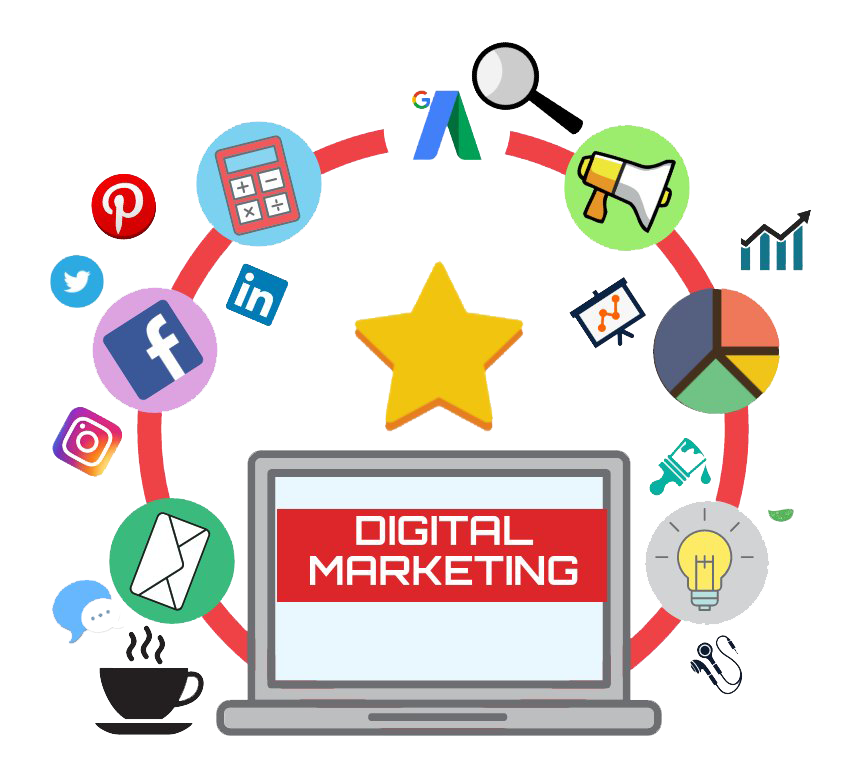by Admin
Digital Marketing
Comments (08)
12 Simple Digital Marketing Strategies for Small Businesses
digital marketing strategy and planning, digital marketing strategy ideas, digital marketing strategy for startups, digital marketing strategies for small business.
In today's highly competitive digital marketplace, having a well-constructed digital marketing strategy is crucial for any small-scale company that wishes to expand and succeed while also competing. No matter if you're just beginning your journey or want to boost your current strategies, an organized approach can be the key to success. This article will go over five extremely practical and effective methods of digital advertising which are appropriate for small-scale business owners as well as suggestions that are particularly useful for businesses that are just starting out.
1. 1. Begin with an Clear Digital Marketing Strategy and Making a Plan
Every successful campaign starts with a clearly defined digital marketing strategy and a well-planned approach. Before you launch into creating content, posting on social media, or buying ads, you need to understand your business goals and the people you're trying to reach.
Steps to develop a digital marketing strategy:
- Define your goals: Are you trying to build brand awareness, drive traffic, generate leads, or increase sales?
- Identify your target audience: Use demographics, psychographics, and buyer personas to understand who you’re marketing to.
- Select your channels: Choose platforms that best reach your audience (e.g., Facebook for B2C, LinkedIn for B2B).
- Set KPIs: Metrics like website visits, conversion rate, or email open rate help you track progress.
- Allocate budget: Divide your budget among various strategies like PPC, SEO, email, and content.
Why it matters: Without a defined plan, your marketing can become chaotic and wasteful. Having a clear strategy ensures focus and maximizes return on investment.
Bonus Tip: Startups gain efficiency by planning with minimal effort. Use tools such as Google Analytics, HubSpot, or Trello to organize your campaigns.
2. Use Content Marketing to Build Authority and Trust
Content marketing is the foundation of all digital marketing strategies, especially for entrepreneurs. When you provide valuable content to your customers, you establish authority and credibility. You also educate your audience and help them navigate the sales funnel.
Content types to consider:
- Blogs: Provide useful information, industry news, and step-by-step instructions.
- Videos: Short clips for social media and longer formats for YouTube or webinars.
- Infographics: Convey complex details visually.
- Case studies: Show how your product or service helped real customers.
- Podcasts: Position your brand as a thought leader.
How to make your content SEO-friendly:
- Incorporate keywords like “digital marketing strategy” and “digital marketing strategies for small business” in titles, headers, and body text.
- Use proper formatting (bullet points, subheadings, short paragraphs).
- Add internal links to other relevant pages or posts.
Why it works: Quality content improves your SEO, drives organic traffic, and positions your brand as a helpful resource.
Pro Insight: Repurpose content across channels. A blog post can become an infographic, a video, and a series of social posts.
3. Leverage Social Media Effectively
Social media gives you unrivaled access to your customers. From building brand recognition to providing customer support, platforms like Facebook, Instagram, LinkedIn, and Twitter are vital.
Strategies to get the most value:
- Select the right platform: Go where your audience spends the most time.
- Post regularly: Use a content calendar to maintain consistency.
- Engage with your audience: Respond to comments, messages, and reviews quickly.
- Run targeted ads: Social media advertising offers precise targeting and high ROI.
Examples of engaging content: Customer testimonials, behind-the-scenes videos, product launches, tutorials, and promotions.
Why it works: Social media boosts visibility, strengthens your brand image, and drives traffic to your site.
Growth Hack: Partner with micro-influencers in your niche to expand reach cost-effectively.
4. Invest in SEO for Long-Term Organic Growth
Search Engine Optimization (SEO) is the process of helping your site rank higher in Google and other search engines. It’s a critical component of any long-term digital strategy.
SEO Best Practices:
- On-page SEO: Optimize titles, meta descriptions, headings, and content with relevant keywords.
- Off-page SEO: Earn backlinks from reputable sites.
- Technical SEO: Ensure fast load times, mobile friendliness, and clean site architecture.
Keyword integration tips: Use phrases like “digital marketing strategy ideas” and “digital marketing strategy for startups” naturally in content, headers, and image alt text.
Why it matters: SEO helps you appear in search results when potential customers look for products or services like yours.
Insider Tip: Consistent blogging with optimized content can double your organic traffic within six months.
5. Use Email Marketing to Nurture Leads and Retain Customers
Email remains one of the highest-ROI channels for small businesses. Here’s how to succeed:
- Build a quality list: Offer incentives (eBook downloads, discounts) to subscribe.
- Segment your audience: Group subscribers by behavior, interests, or demographics.
- Automate workflows: Welcome sequences, product follow-ups, and re-engagement campaigns.
- Measure performance: Track open rates, click-through rates, and conversions to refine your approach.
Email content ideas: Newsletters, promotions, product updates, and educational pieces.
Why it works: Email nurtures leads over time and drives repeat business.
Pro Tip: Personalized emails deliver six times higher transaction rates—use your data wisely.
Bonus Strategies to Maximize Your Digital Marketing Efforts
- Utilize PPC Advertising: Immediate results to complement organic efforts. Tips: geo-targeting, A/B testing, and UTM tracking.
- Embrace Marketing Automation: Save time and increase efficiency with tools like Mailchimp (email), Hootsuite (social), and HubSpot (inbound).
- Implement Local SEO: Optimize your Google Business Profile, get listed in local directories, and encourage customer reviews.
- Monitor & Adapt with Analytics: Track bounce rate, conversion rate, and email metrics to make data-driven decisions.
- Stay Up-to-Date with Trends: Watch for AI in marketing, voice search optimization, and interactive content. Test via A/B experiments and update your keyword strategy regularly.
- Use Retargeting to Re-Engage: Show ads to past visitors via Google Display Network, Facebook Custom Audiences, and LinkedIn Matched Audiences. Create distinct creatives for new vs. returning users.
Creating a powerful digital marketing strategy doesn't have to be complicated. Whether you're a small business or a startup, these five core strategies—plus our bonus tips—can elevate your brand, build loyal audiences, and drive revenue growth.
From digital marketing strategy and planning to content creation, SEO, social media, and email marketing, consistency and clarity are key. Use these proven digital marketing strategy ideas to start strong, stay flexible, and keep growing.
Remember, successful digital marketing strategies for small business don't rely on luck—they rely on data, creativity, and execution.
Need help in formulating and the Digital strategy? Our experts are adept at helping small-sized businesses create and implement plans that are based on performance, specific to their objectives.










